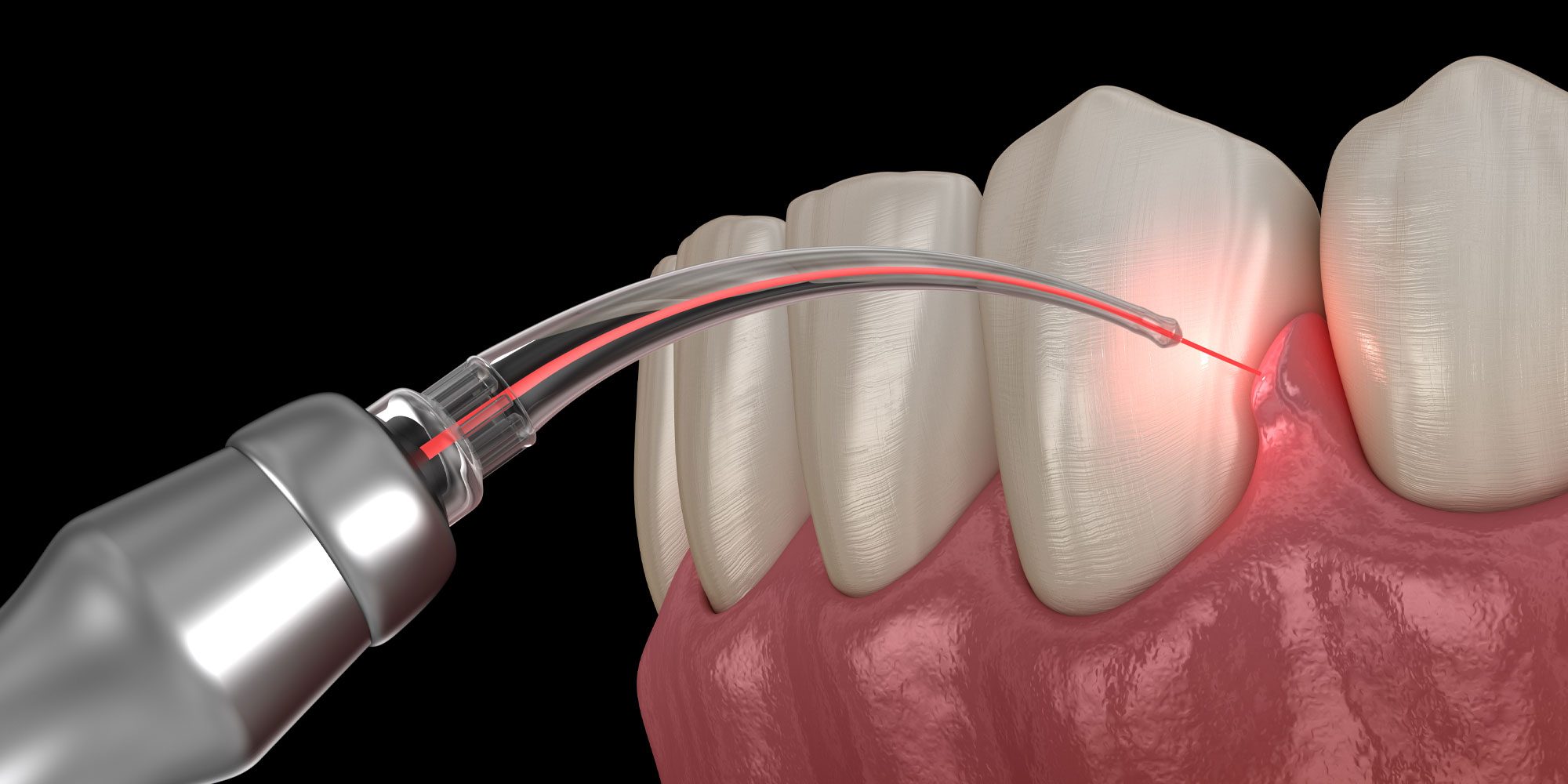
While high-quality dental implants placed by experienced implant dentists have a high success rate of 95–98%, a progressive inflammatory condition known as peri-implant disease can lead to implant failures. This condition is typically associated with poor oral hygiene, but uncontrolled diabetes and smoking also significantly increase the risk.
The early stage of peri-implant disease, called peri-implant mucositis, is like gingivitis (early-stage gum disease). When left untreated, this can progress to peri-implantitis, which typically follows a more aggressive course than periodontitis. While regular follow-up visits following dental implant surgery are required to protect your warranty from Touchstone Dental Implant Center, they’re essential for early detection and management of complications such as peri-implantitis in Lakewood, CO.
Our implant dentist, Dr. Justin Becerra, is skilled in LAPIP™ (Laser Assisted Peri-Implantitis Procedure), a gentler, evidence-based procedure for rescuing failing dental implants. LAPIP is an alternative to invasive surgery that enhances your body’s natural healing processes.
LAPIP is the only FDA-approved laser procedure for treating ailing dental implants. LAPIP is administered with the PerioLase® MVP-7™, a sophisticated laser that provides effective disinfection and regeneration of damaged tissue without cutting or stitching tissue.
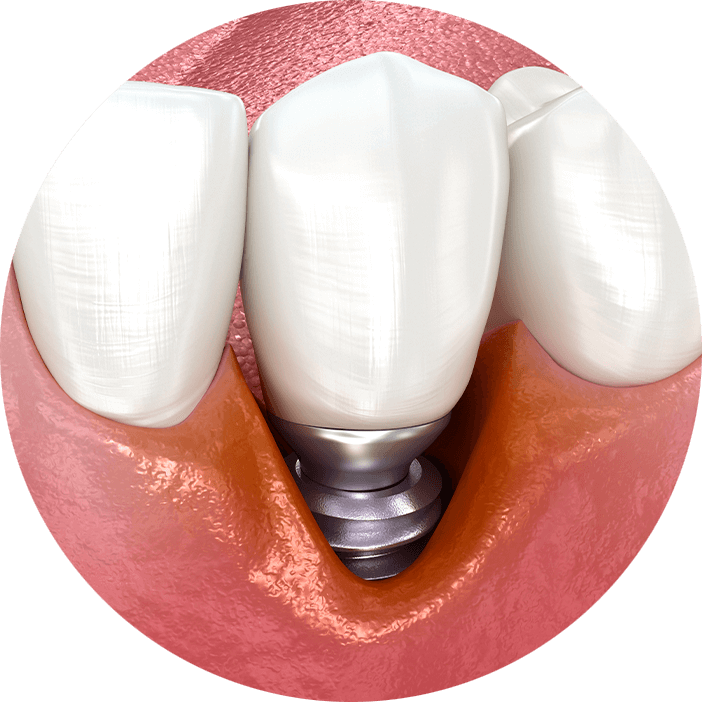
At Touchstone Dental Implant Center, we always strive to provide seamless and gentle implant procedures that exceed our patients’ expectations. LAPIP fits this philosophy perfectly because the innovative laser enables our team to treat peri-implantitis safely, efficiently, and effectively.
The procedure to rescue failing dental implants uses a specific wavelength of light to target and eliminate harmful bacteria responsible for inflammation. Studies show that 95% of failing implants treated with the LAPIP protocol reintegrate in the pockets and stabilize with three to eight threads of bone growth.
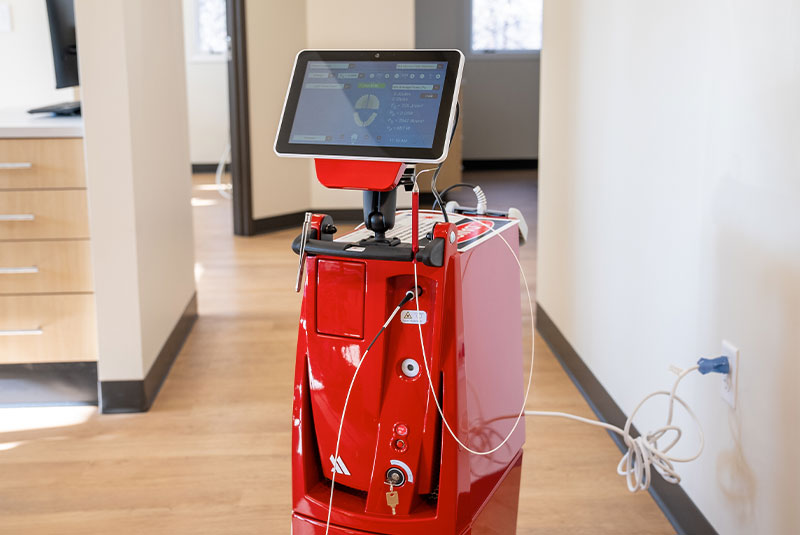
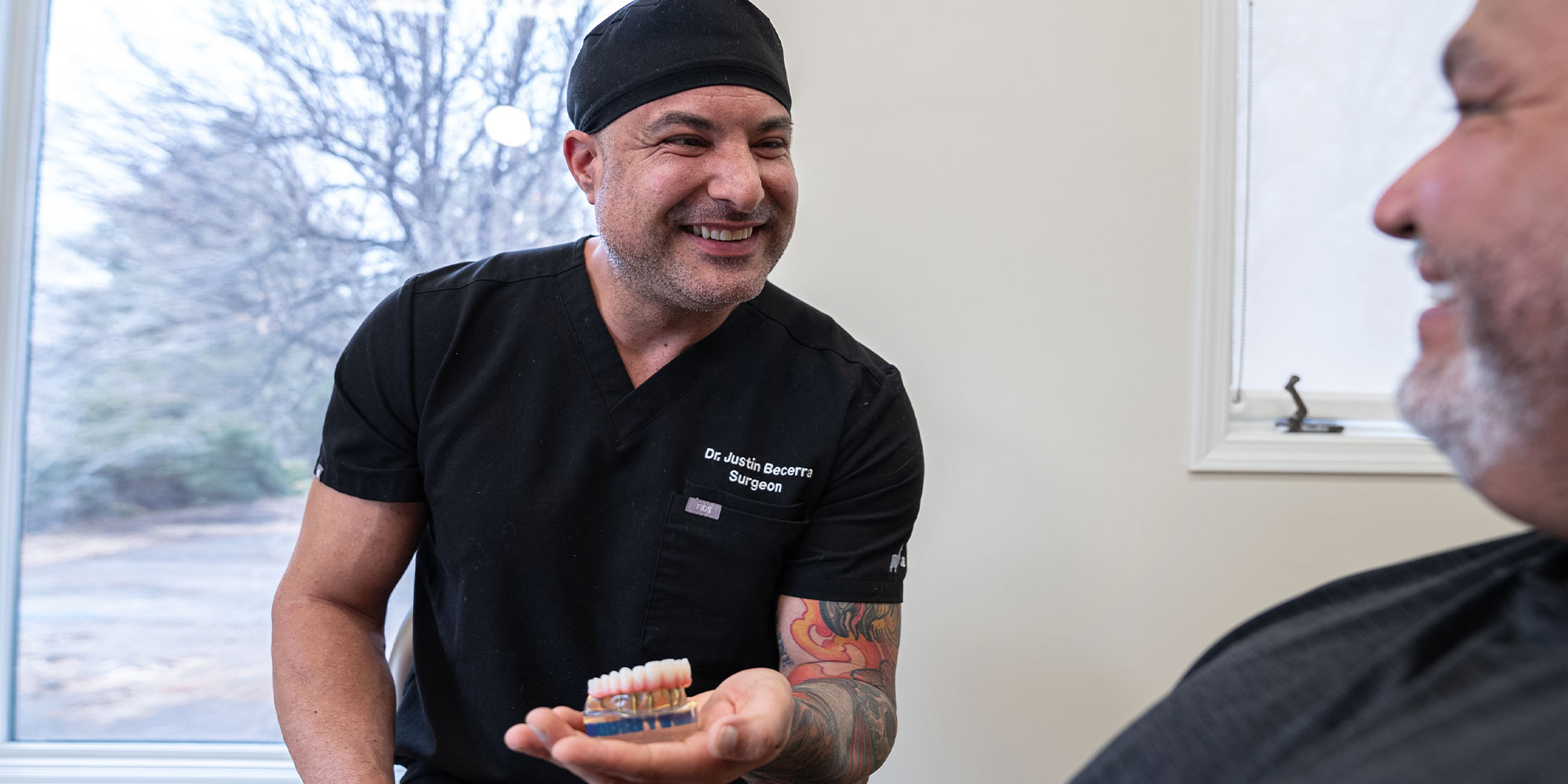
The first step in treating failing dental implants in Lakewood, CO, involves measuring excessive periodontal pocket depth around implants with a specialized probe. Then, the laser vaporizes bacteria, diseased tissue, pathologic proteins, and titanium corrosion contaminants in soft tissue. Next, ultrasonic scaler tips are used to remove surface growth and make any necessary bone modifications.
The laser is highly effective because it forms a stable fibrin blood clot containing stem cells from your bone. This provides a secure enclosure to protect the area from getting reinfected and enables dental implants to re-integrate with your jawbone. Although many patients experience a full recovery in just 24 hours, you may need to wait longer to eat certain foods to avoid damaging repaired gum tissue and regenerated bone.
I understand the information disclosed in this form may be subject to re-disclosure and may no longer be protected by HIPAA privacy regulations and the HITECH Act.
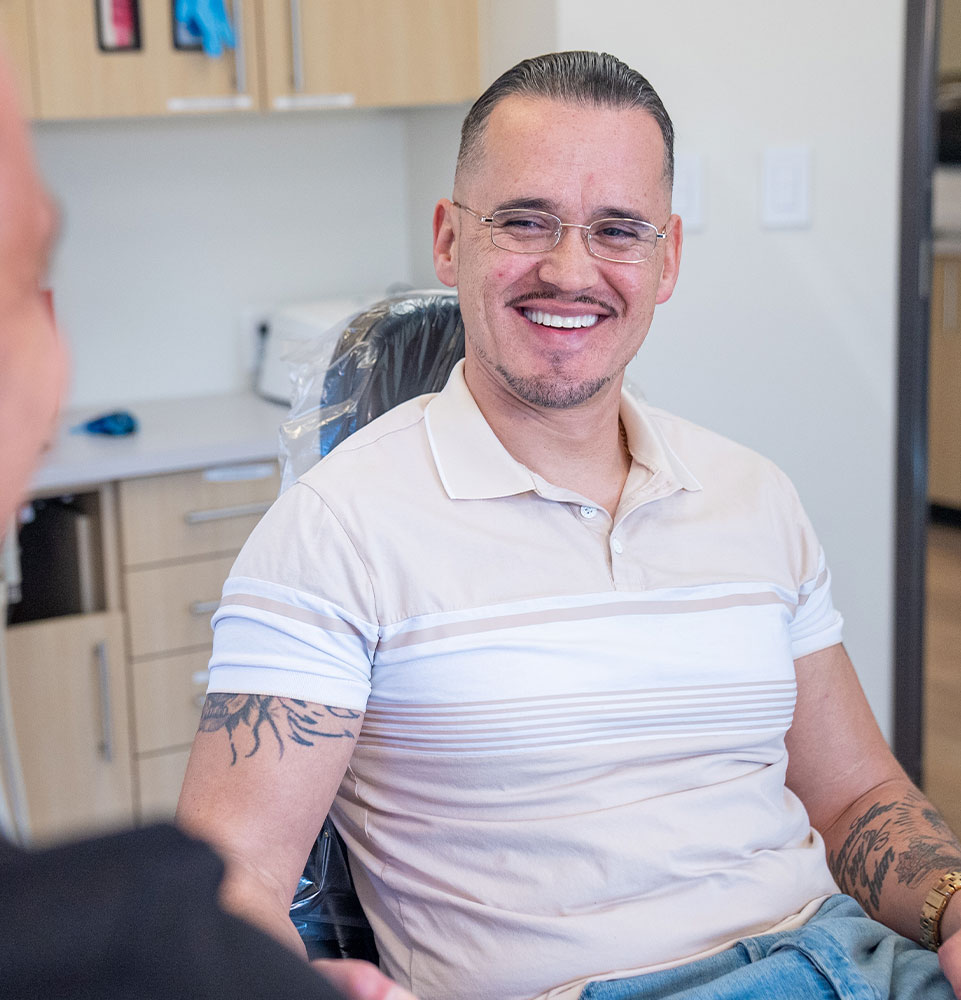
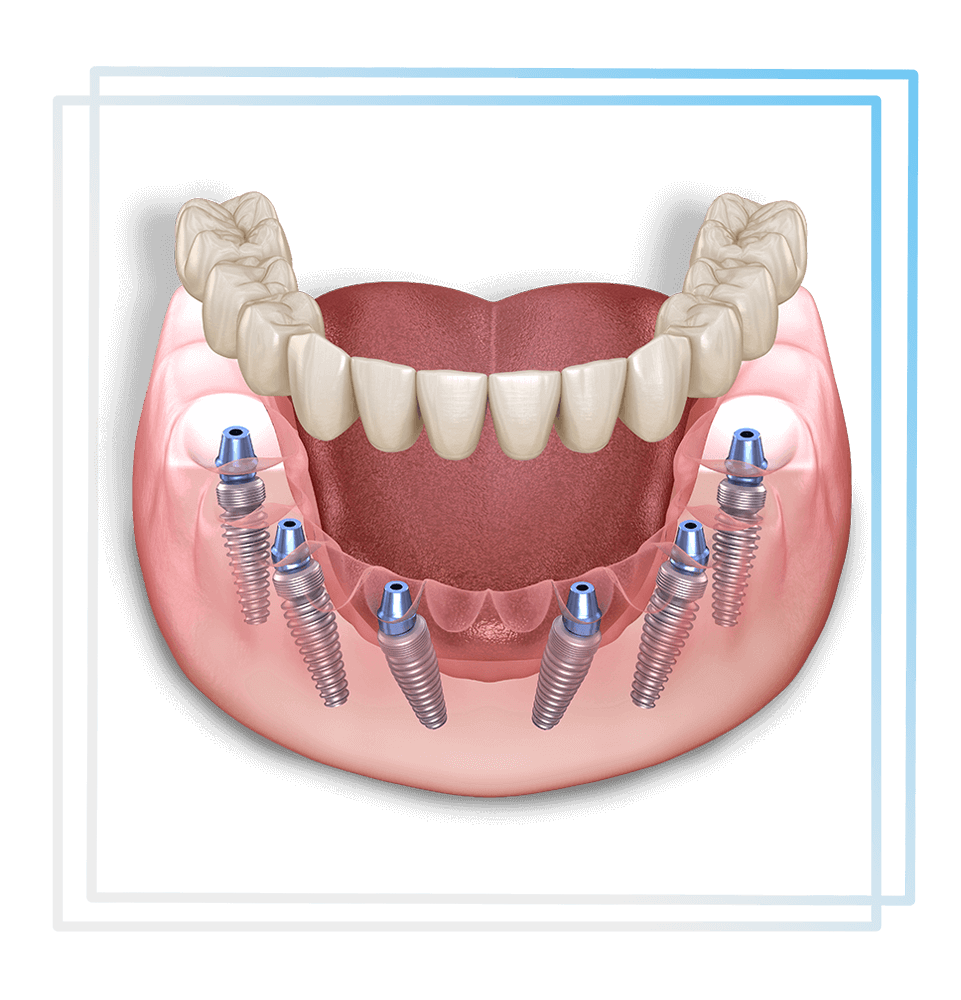

Privacy Policy | © All rights reserved